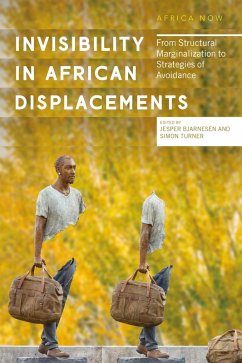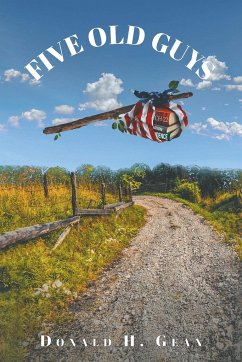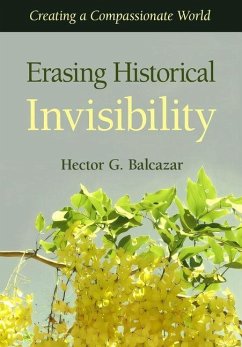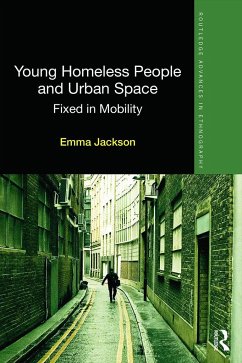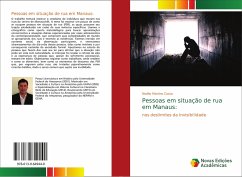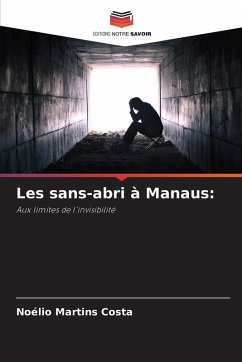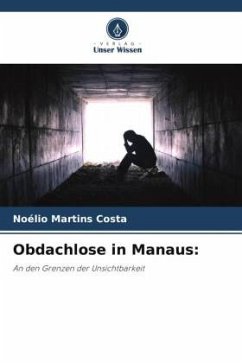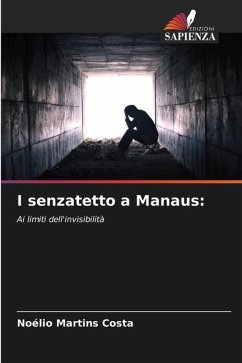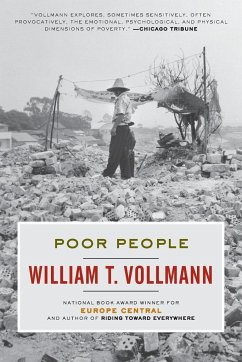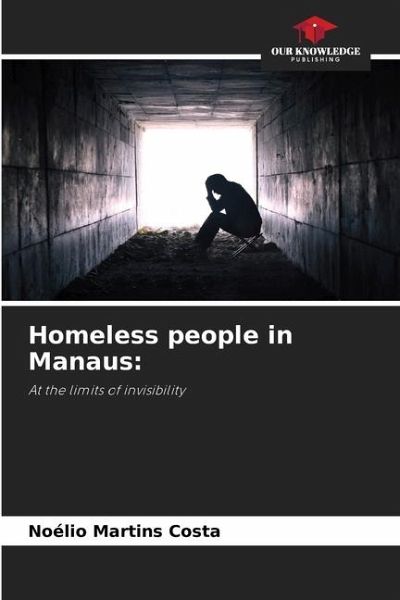
Homeless people in Manaus:
At the limits of invisibility
Versandkostenfrei!
Versandfertig in 6-10 Tagen
27,99 €
inkl. MwSt.

PAYBACK Punkte
14 °P sammeln!
This work will attempt to show the daily lives of people who live on the streets in the centre of Manaus/AM. The aim was to show a little of how people living on the streets (PSR) occupy themselves, who have their own path established by their specific experiences. We used ethnography as a methodological approach to get closer to the daily situations experienced by these contemporary survivors, who build their complex world by appropriating the streets and weaving their existences. We immersed ourselves in the social context, via participant observation, and experienced the day-to-day life of ...
This work will attempt to show the daily lives of people who live on the streets in the centre of Manaus/AM. The aim was to show a little of how people living on the streets (PSR) occupy themselves, who have their own path established by their specific experiences. We used ethnography as a methodological approach to get closer to the daily situations experienced by these contemporary survivors, who build their complex world by appropriating the streets and weaving their existences. We immersed ourselves in the social context, via participant observation, and experienced the day-to-day life of these people, considered invisible and therefore excluded from formal society. We used the study of people who make the streets their home to affirm that the situation cannot be taken for granted. The intention was to reveal the portrait of life and the hopes of people who, despite psychosocial suffering, insist on existing. Our aim was to record how they work, where they live and how they eat, as well as the moments when they rest. Because they wander the streets, they are treated pejoratively as idle wanderers, given the common sense that assumes they are useless.






